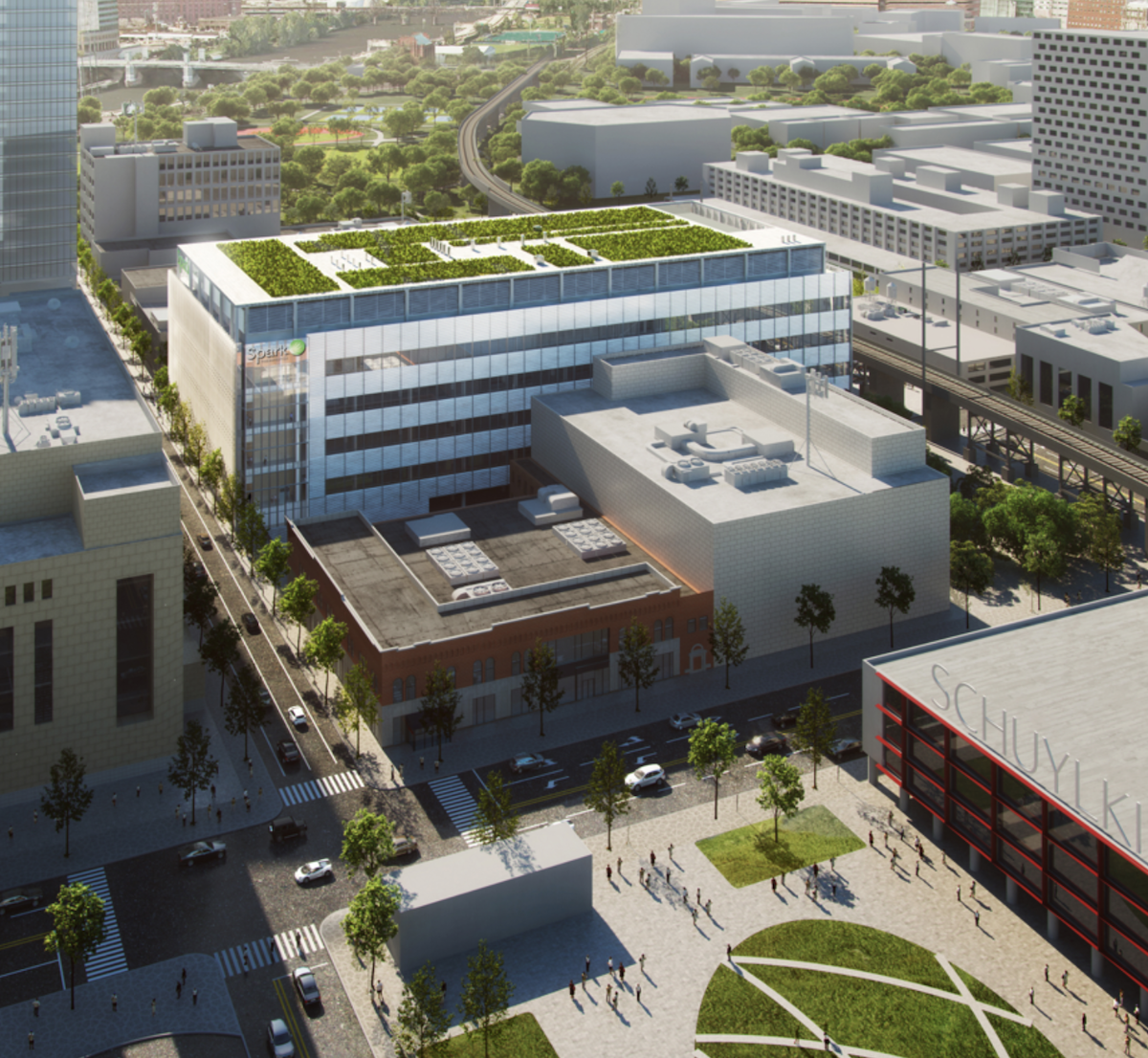City and state officials gathered at 30th and Chestnut streets Tuesday for the groundbreaking of one of Philadelphia’s largest life science centers to date.
The company at the center of the project, Spark Therapeutics, is a history maker for the region, too: It was acquired by Roche for $4.8 billion in 2019, Philly’s largest-ever VC backed exit. At the time, the acquisition was a signal that the growing life sciences industry in Philadelphia was to be taken very, very seriously.
Now, Spark’s 500,000 square foot, six-story cell and gene therapy center will serve as the Philadelphia-based global center for Roche, and is one of many projects to bring more lab space to the region.
The cell and gene therapy center, slated to be completed in 2026, will provide in-house manufacturing for Spark, but will also allow for “cross-functional teams and partners to come together and work side by side to realize the full potential of gene therapy,” per a company statement. Spark’s lease for the land is for 99 years, it said in 2021.
The center is being built on Drexel University’s Lot F — a purposeful move by Spark, then-CEO Jeff Marrazzo told Technical.ly in 2021, because Spark will partner with the university with the goal of advancing life sciences workforce development for the region. (Marrazzo left the company in spring 2022. His successor is former COO Ron Philip.)
The facility will sit across the street from Spark’s existing University City building, and will allow for hands-on learning experiences and R&D.

Pennsylvania Gov. Josh Shapiro was among the city and state representatives who spoke at the groundbreaking Tuesday, stressing that he wanted Pennsylvania to be known for the innovative work being done in the region.
“Philadelphia is going to be the gene therapy capital of the world,” he said.
As Philadelphia’s life science industry quickly grows, developers have been struggling with the increased demand for lab space. The same month Spark announced the project in late 2021, real estate firm CBRE released a report that the region had seen a 40% increase in demand for space compared to early 2021.
CBRE released a similar report this week, showing that at the end of 2022, Philadelphia sat at 7.9% vacancy for lab space — compared to around 14% one year prior — and was nearing a total of 10 million square feet of leasable lab space.
“While the spike in activity in 2022 might not hold up in 2023, consistent growth for the industry is expected in the region,” CBRE said.
In University City, where much of the city’s life sciences sector is located, lab space vacancy sat at just 1.9% at the end of 2022. The Navy Yard, which has more than 700,000 square feet of life sciences space, is currently at 0% vacancy, but impending projects will bring much more availability in future years. And Center City is poised to become more of a hub for life sciences, with 200,000 square feet of lab space coming to The Curtis.
The report predicted that demand for space will remain strong, but level out a bit.
“The market will likely settle into a reliable pattern as demand remains strong and new supply is delivered,” the report said. “A considerable amount of near term demand remains, with half of the current tenants in the market looking to sign a lease in 2023.”







